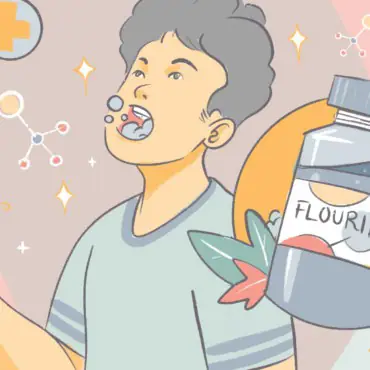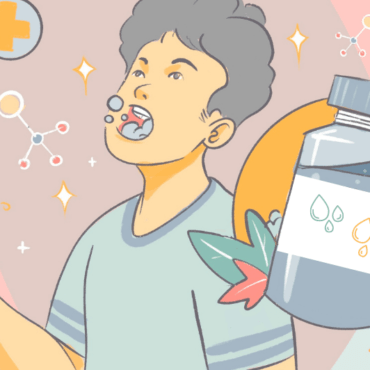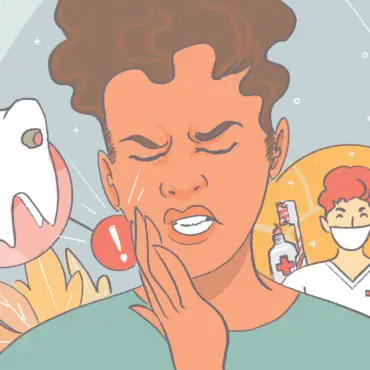The term “white tongue” refers to a symptom that causes a thick coating of a white film on your tongue. Sometimes it may only cover patches of your tongue. In other cases, it may cover the entire surface of the tongue, including the back.
Accompanying symptoms can include bad breath, redness, or a foul taste in your mouth. And while you might worry when you have it, white tongue is rarely a cause for concern. It can usually be easily treated at home and is most likely a temporary condition. In any case, you should see your dentist when you notice white tongue.
Causes of white tongue
There are many causes of white tongue, the most common of which is poor oral hygiene. When this occurs, it can can affect the papillae or small bumps that contain your taste buds on your tongue. In such a situation, these papillae may grow enlarged, swell up, and become inflamed. As a result of the swelling, bacteria, dirt, food, fungi, and dead cells get trapped between the papillae. This trapped debris gives the appearance of a white coating on your tongue.
There are several causes that can lead to the development of a white tongue. These include:
- Poor oral hygiene, like bad brushing and flossing habits
- Dehydration
- Excessive alcohol use
- Breathing from the mouth
- Smoking or chewing tobacco.
- Eating a diet low in roughage, that is, mainly eating foods that are soft or mashed
- Fevers
- Irritation caused by sharp edges inside your mouth, such as from your teeth, dentures, or braces
Aside from these causes, there are several other conditions that are linked to the development of a white tongue:
Leukoplakia
Leukoplakia is a common condition of an overgrowth of cells within the mouth. The combination of these cells with the protein keratin, which is found in your hair, results in the formation of white patches on the tongue. These white patches can also appear on the inside of the cheeks and along the gums. Causes of this condition include excessive consumption of alcohol and smoking or chewing tobacco. While leukoplakia is generally harmless, in some rare cases, it can develop into oral cancer years after it first appears. So be sure to make regular check-ups with your dentist to ensure it’s not worsening.
Sign up for our newsletter.
Just let us know a bit about yourself.
Geographic tongue
Geographic tongue is a condition where parts of the upper layer of skin on the tongue shed very quickly. During the process of regrowing this skin, there are tender and red areas left on your tongue, which can get infected. At the same time, some parts of the skin may stay in place too long. This unshed skin then turns white. Geographic tongue is not contagious and does not need to be treated. Simply make sure to avoid any food that causes discomfort to the mouth.
Oral lichen planus
Oral lichen planus is a chronic, long-term condition that results in inflammation in the mouth. Its cause is an immune system disorder, and it results in the formation of white patches in the mouth and on the tongue. It may also result in soreness of the gums, as well as sores inside the mouth. This is not a contagious condition and does not need to be treated. However, in severe cases, it can persist for several years. In such a case, your healthcare provider may prescribe steroid sprays and steroid mouthwashes that will reduce the discomfort caused by symptoms like sore or burning gums.
Syphilis
Syphilis is a sexually transmitted disease that can result in the development of sores within the mouth. Untreated syphilis can result in several conditions, including the development of white patches on the tongue, which is known as syphilitic leukoplakia. Syphilis can usually be treated with a single dose of penicillin. Penicillin is an antibiotic that kills the bacteria, causing the disease. Without treatment, syphilis can eventually cause nervous system damage and result in many long-term health issues. If your syphilis has been an issue for over a year, you may need more than a single dose of penicillin.
Oral thrush
Oral thrush is an infection within the mouth caused by Candida yeast. Though Candida is a natural part of the mouth, an overgrowth of this substance can cause an issue. The likelihood of developing oral thrush increases if you have other conditions like diabetes, immune system conditions like HIV and AIDS, and iron and vitamin B deficiencies. You also have a greater likelihood of developing this condition if you wear dentures. If you suspect you have oral thrush, you should find a dentist or doctor in order to get a prescription for antifungal medication. This medication may be in the form of pills, gels, and liquids, and will require several daily applications over one or two weeks.
Medication
Medication like antibiotics can result in the development of a yeast infection within the mouth. This, in turn, causes the development of a white tongue.
Oral cancer
Cancer of the mouth or tongue, while rare, can result in the development of a white tongue. If your dentist feels your white tongue is a symptom of mouth cancer or signifies that you have a high risk of developing mouth cancer, they will remove the white patch with surgery.
Treating white tongue
Usually, the white tongue clears up on its own within a few weeks. Some other simple ways of getting rid of a white tongue include:
- Practicing proper oral hygiene
- Running a tongue scraper across the tongue
- Gently brushing your tongue with a toothbrush with soft bristles
- Reducing alcohol consumption
- Eating lots of fruits and vegetables
- Avoiding smoking
- Drinking cool drinks through a straw
- Drinking lots of water
When you should see your dentist for white tongue
If you have no other symptoms or issues other than a white tongue, there is no reason to immediately contact a dentist. However, if the white tongue does not disappear within a few weeks, you should find a dentist near you and make an appointment.
Other situations in which you should contact a dentist:
- Your tongue is painful, hurts, or itches. In such a situation, there is a risk that the white tongue is a sign of an infection or cancer.
- There are open sores on your tongue.
- You find that you have trouble using your mouth and tongue in order to chew and swallow food, or you have difficulties talking.
- You have other symptoms aside from the white tongue, including fever, weight loss, and rashes.
- You have a weak immune system or HIV and AIDS.
Due for a checkup?
Find a top rated dentist near you that takes your insurance.
Overall, if you want to avoid white tongue (and many other oral conditions), improve your oral hygiene. And remember, while white tongue is often a symptom of a curable condition, it can be a sign of something more serious for you. So make sure to visit your dentist at least once every six months for a check-up. Just stay on top of your oral health for your own good.








